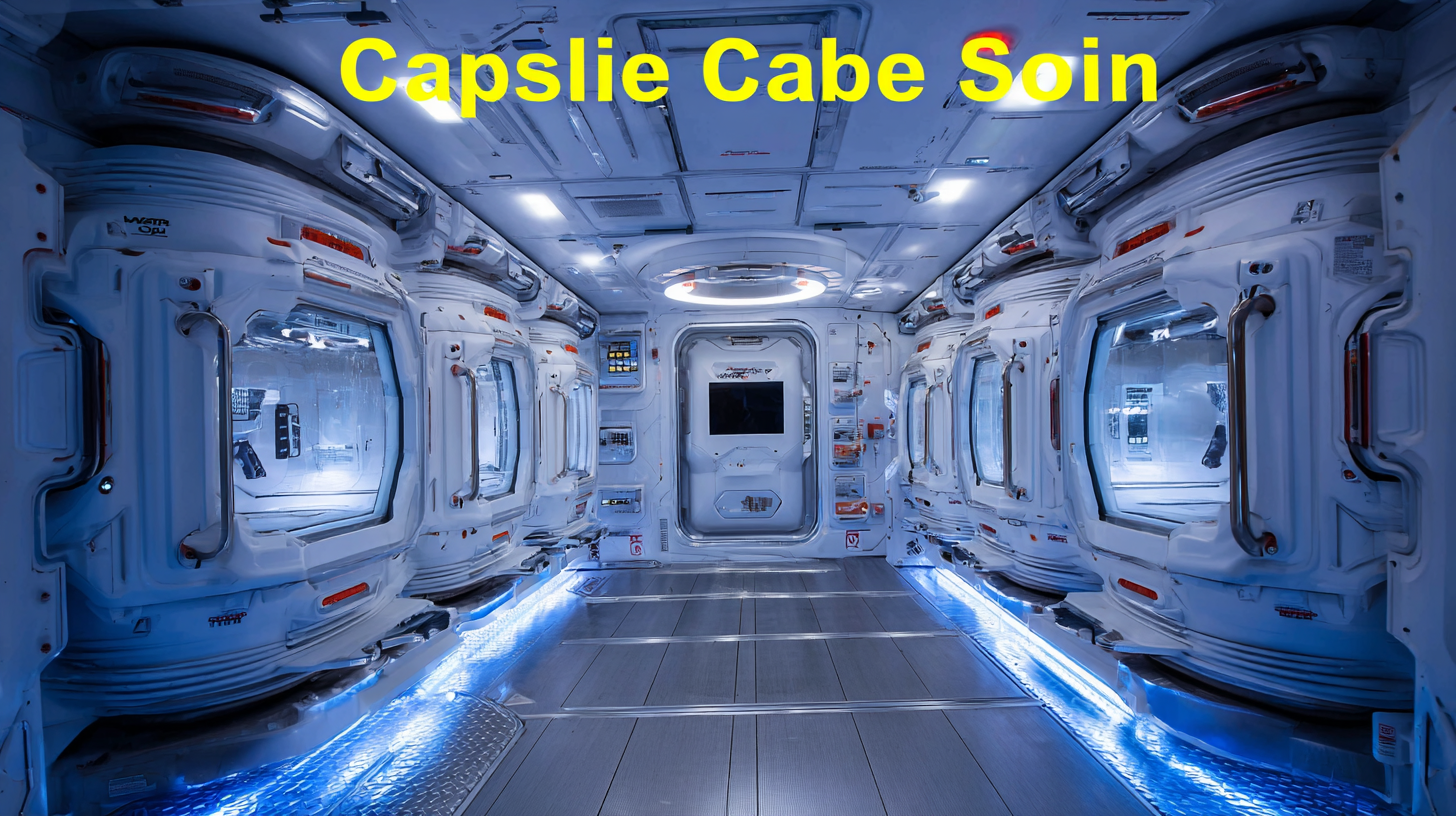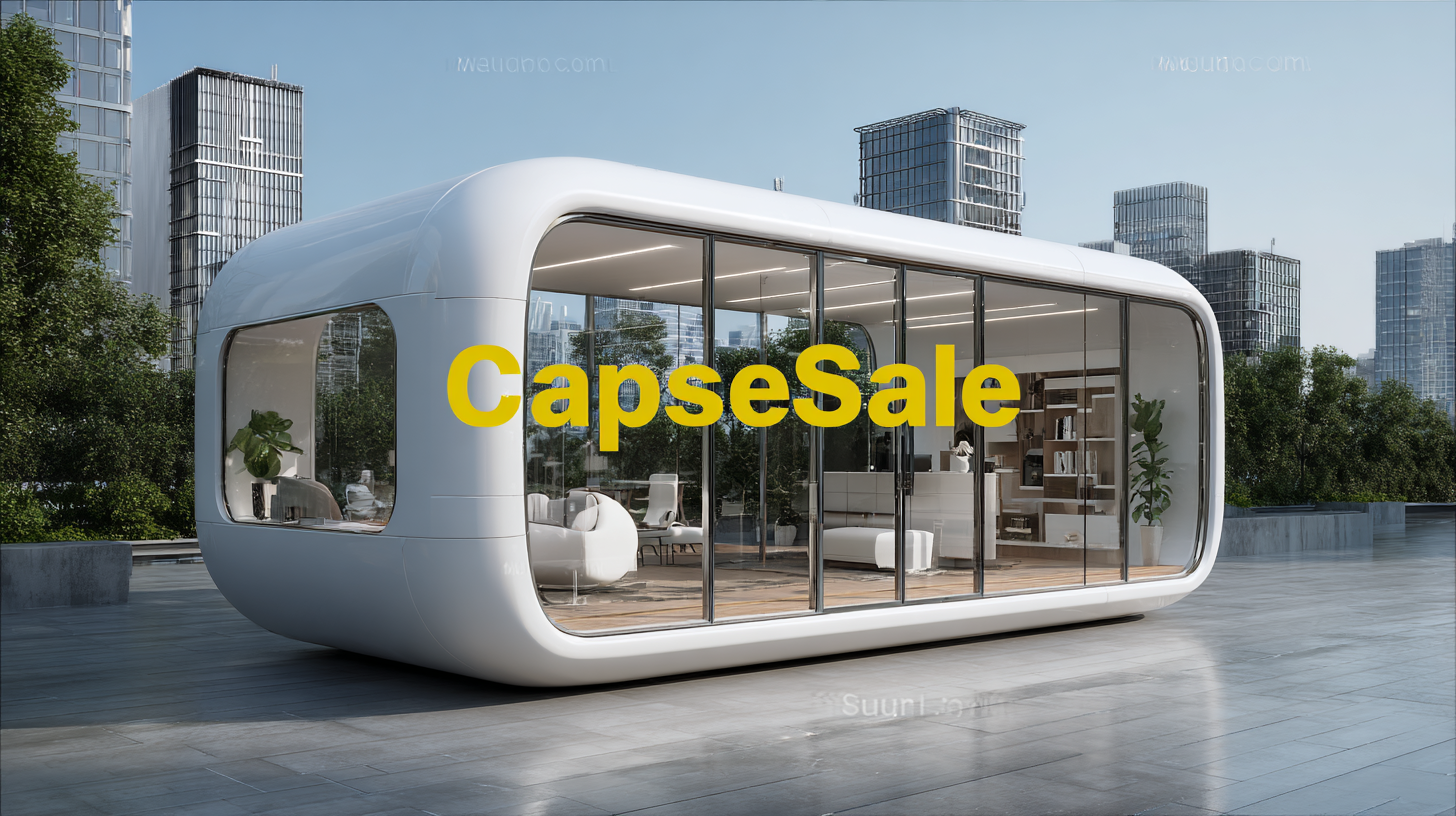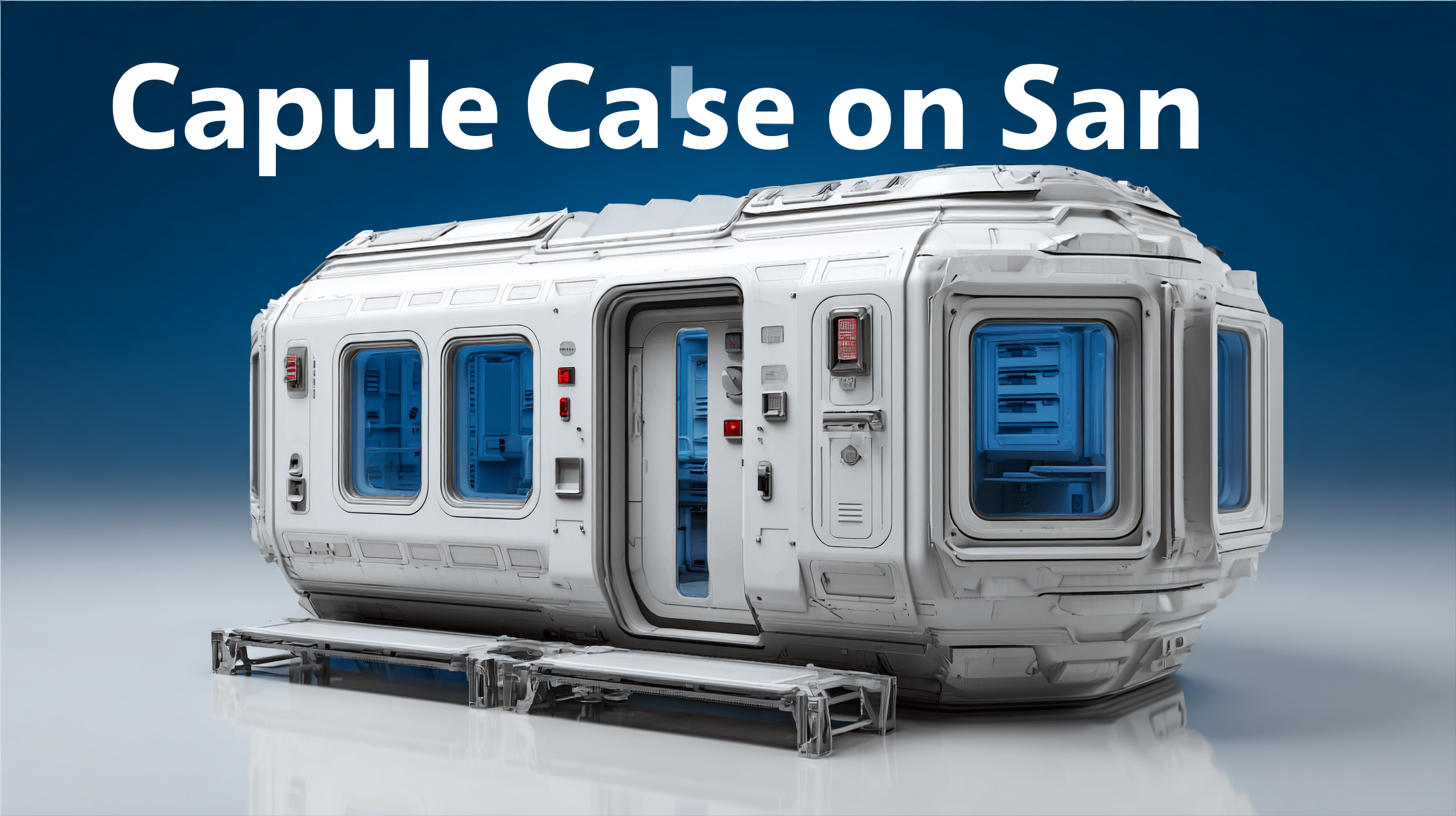
News
How to Identify Top Quality Suppliers for the Best Capsule Cabin for Sale Worldwide
In the rapidly evolving marketplace for modular living solutions, identifying top quality suppliers for the best capsule cabins for sale has become crucial for both business success and consumer satisfaction. According to a report by Statista, the global market for portable cabins is expected to reach $173 billion by 2027, reflecting a growing trend towards innovative and space-efficient living alternatives. However, with the surge in demand, the risk of encountering subpar products or suppliers has intensified, leading to significant challenges in maintaining industry production standards.

As the Capsule Cabin For Sale market expands, it is essential to understand the key factors in supplier evaluation, including material quality, design efficiency, and adherence to safety regulations. This blog aims to explore these factors in depth, helping stakeholders make informed decisions in selecting the right suppliers in this competitive industry.
Importance of Quality Standards in the Capsule Cabin Industry
In the evolving landscape of the capsule cabin industry, the importance of quality standards cannot be overstated. As consumer demand rises for safer and healthier living spaces, suppliers must adhere to stringent quality benchmarks. Recent studies indicate that cabin air quality significantly impacts occupants’ health, with key volatile organic compounds (VOCs) such as formaldehyde and benzene posing serious risks. Establishing robust quality standards helps mitigate these health hazards, ensuring a safer environment within capsule cabins.
Tips: When evaluating suppliers, focus on those who demonstrate compliance with recognized quality certifications and actively monitor cabin air quality. Additionally, consider their track record in filtration performance; a minimum average filtration efficiency above 70% is crucial for optimal air quality.
An increasing number of governments, including Canadian ministers, are advocating for new air quality standards, addressing the growing concern for occupant health. As the capsule cabin market continues to grow at a projected CAGR of over 7% from 2025 to 2032, suppliers that prioritize adherence to quality standards will likely emerge as market leaders.
Tips: Engage with suppliers who are part of collaborative industry efforts aimed at establishing new standards and who can provide transparent testing results. Prioritizing suppliers committed to quality ensures you receive a product that promotes well-being.
Evaluating Supplier Credentials: Certifications and Compliance
When searching for top-quality suppliers for capsule cabins, evaluating supplier credentials is critical to ensure compliance with industry standards. One of the primary credentials to investigate is the certifications held by potential suppliers. Look for internationally recognized certifications such as ISO 9001, which indicates that the supplier adheres to strict quality management principles. Additionally, specific certifications related to the construction and materials used in capsule cabins can provide assurance of safety and durability. Suppliers with the appropriate certifications not only demonstrate their commitment to quality but also reduce the risk of liability for buyers.

Compliance with local and international regulations is another essential area to assess. Suppliers should be transparent about their adherence to building codes, safety regulations, and environmental standards. This includes certifications for sustainability practices, which are becoming increasingly vital in today’s market. Conducting thorough due diligence, such as reviewing supplier audits and compliance documents, can help you gauge their operational integrity. By focusing on these criteria, you can identify reputable suppliers who guarantee high standards, ensuring that your investment in capsule cabins aligns with quality and safety expectations.
Market Trends: Growth of Capsule Cabins in the Global Tourism Sector
The capsule hotel market is experiencing significant growth, driven in part by the recent tourism boom. With Japan's record tourist numbers stretching hotel capacities, there is an increasing shift towards alternative accommodations. The capsule hotel market is projected to grow by USD 49.14 million from 2021 to 2026, achieving a compound annual growth rate (CAGR) of 9.86%. This trend indicates a broader acceptance and demand for compact, cost-effective lodging options that cater to budget-conscious travelers and those seeking unique experiences.
To capitalize on this trend, potential investors and developers should focus on identifying top-quality suppliers for capsule cabins. One effective tip is to analyze market reports that outline the growing demand for capsule hotels and the expected revenue increase from USD 290.75 million in 2025 to USD 575.95 million by 2033. Additionally, it's essential to assess the innovations in design and modular construction, which can enhance the functionality and appeal of these accommodations.
As the alternative accommodation market is forecasted to grow from USD 209.5 billion in 2025 to USD 804.6 billion by 2035, stakeholders should prioritize suppliers who can provide not only durable and aesthetically pleasing designs but also adapt to future market trends. Keeping an eye on industry forecasts and establishing relationships with reputable manufacturers will be crucial for success in the rapidly evolving hospitality landscape.

Pricing Analysis: Cost vs. Quality in Capsule Cabin Sourcing
When sourcing capsule cabins, it’s essential to conduct a thorough pricing analysis that balances cost and quality. While lower-priced options may appear appealing at first glance, they often come with trade-offs that can compromise durability, functionality, and overall safety. Evaluating the materials used, design features, and production standards can reveal whether a supplier prioritizes quality or is simply competing on price. It’s crucial to ask for detailed specifications and compare them across different suppliers to make an informed decision.
Additionally, consider the long-term costs associated with your purchase. A high-quality capsule cabin may require a higher upfront investment, but it often leads to fewer repairs and replacements down the line, ultimately saving you money. Delving into the supplier’s reputation through customer reviews and case studies can provide insight into how their products hold up over time. This dual focus on pricing and performance will help ensure that you invest in a capsule cabin that meets your needs while maintaining a strong return on investment.
Quality vs. Cost Analysis of Capsule Cabins
Sustainability Practices: Identifying Eco-Friendly Suppliers in Manufacturing
Sustainability in manufacturing has become a pivotal consideration for businesses seeking to identify top quality suppliers, particularly in the capsule cabin industry. According to a recent report by the International Institute for Sustainable Development, 73% of consumers prefer brands that practice transparency regarding their environmental impact. This statistic emphasizes the necessity for suppliers to adopt eco-friendly practices throughout their production processes. Companies are encouraged to look for suppliers that utilize sustainable materials, energy-efficient manufacturing techniques, and waste reduction strategies.
Furthermore, the Global Sustainable Supply Chain Report indicates that companies implementing sustainability-focused supply chains outperform their competitors by up to 20% in annual revenue growth. This is particularly relevant for suppliers of capsule cabins, where sourcing eco-friendly materials such as recycled metals and carbon-neutral processes can significantly enhance a company’s market reputation. When assessing potential suppliers, it is crucial to inquire about certifications such as ISO 14001, which signifies a commitment to effective environmental management practices. By prioritizing suppliers with these credentials, businesses can ensure they are making ecologically responsible choices while also meeting the demands of a sustainability-conscious clientele.
How to Identify Top Quality Suppliers for the Best Capsule Cabin for Sale Worldwide - Sustainability Practices: Identifying Eco-Friendly Suppliers in Manufacturing
| Supplier Location | Sustainability Certifications | Materials Used | Energy Sources | Waste Management Practices | Customer Satisfaction Rating |
|---|---|---|---|---|---|
| North America | ISO 14001, LEED | Recycled Aluminum, Eco-friendly Paint | Solar Energy, Wind Energy | Zero Waste to Landfill | 4.8/5 |
| Europe | BREEAM, FSC Certified | Sustainable Wood, Non-Toxic Materials | Hydropower, Biomass | Composting, Recycling Programs | 4.5/5 |
| Asia | ISO 50001, Green Label | Bamboo, Recycled Plastics | Geothermal, Renewable Energy Credits | Circular Economy Practices | 4.7/5 |
| South America | Rainforest Alliance, Carbon Neutral | Organic Cotton, Natural Fibers | Solar Farm, Wind Turbines | Reforestation Projects | 4.6/5 |
| Africa | Eco-Management, Fair Trade | Locally Sourced Materials | Solar Panels, Biogas | Community Recycling Initiatives | 4.4/5 |
